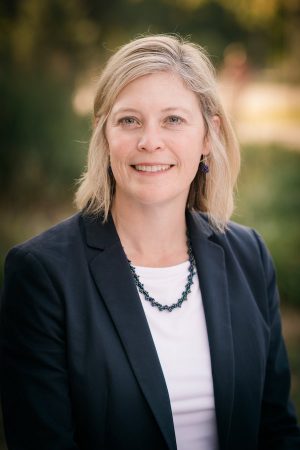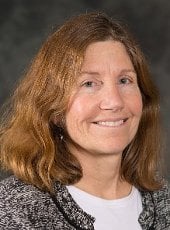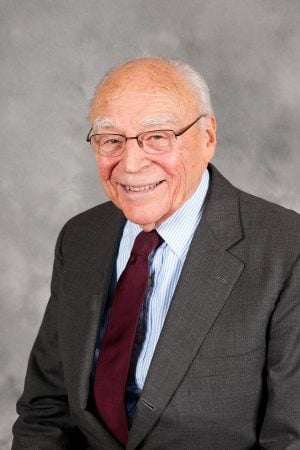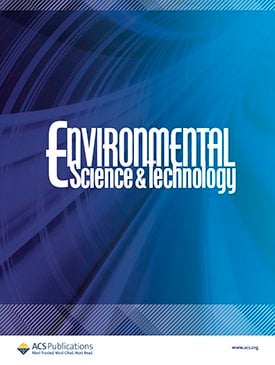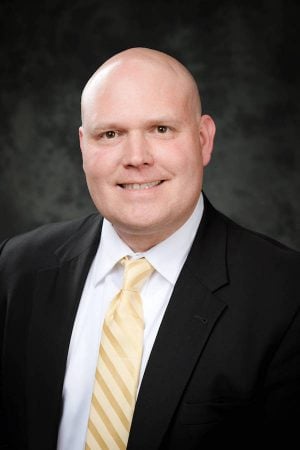
Each spring semester, the Department of Civil and Environmental Engineering honors students from our Department with an award ceremony/banquet for all nominees for various awards. Unfortunately, we were unable to recognize our extraordinary students in person this year but would like to give them a hearty Congratulations on their commitment to excellence!
Here is a listing of the award winners:
Undergraduate Department Service Award
This is one of our fairly new awards and it was created to recognize a CEE student that has shown exemplary service to the CEE Department through student organizations or other groups affiliated with the Department. The award is accompanied by a $500 scholarship.
The 2020 Undergraduate Department Service Award will go to Maddie Barrie

Maddie is serving in her second term as President of the Michigan Tech Student Chapter of Engineers Without Borders-USA. In this role, she has contributed a great deal to the student organization through a number of specific tasks and activities. In addition to overseeing chapter operations, she has organized fund raising activities, recruiting events, and student participation in national and regional EWB-USA conferences. She has also made notable contributions to both of the chapter’s ongoing international community programs. She has been an active member of the Bolivia project team, and she served as the U.S. point of contact during the team’s assessment trip in May 2019. She has also contributed to the Guatemala team’s work, serving as the lead for project monitoring, evaluation, and learning. In this role, she is responsible for collecting data on project performance and community outcomes, and reporting to the EWB-USA national office. For her dedication to the success of the EWB-Michigan Tech student chapter and its partner communities, Maddie has been awarded the Department Service Award.
The David W. Hand Environmental Process Engineering Lab Award
This award recognizes a team of students from the CEE 4509 class for: outstanding technical skills in the laboratory, outstanding teamwork and professionalism, effective oral and written communications, and excellence in safety protocol as recognized by your peers and supported by the instructor.
The team members recognized for this honor are:
Devin Slavik, Savannah Fowler, and Brett Cianek

Nicole Bloom Award for Environmental Sustainability
This award is made annually to an undergraduate civil or environmental engineering student who has demonstrated leadership, passion, and activism for effecting environmental sustainability at the local, national, or global level.
The Reddy Scholarship ($1000) is awarded annually in conjunction with the Nicole Bloom Award for Environmental Sustainability.
The Dr. Pati Damoder and Soumitri Reddy fellowships and scholarships are made available to the Department through the generosity of Dr. Pati Reddy and his wife, Soumitri. Dr. Reddy is a 1962 graduate of our MS program. He and his wife have been strong supporters of Michigan Tech’s Civil and Environmental Engineering Department.
This year the Nicole Bloom Award for Environmental Sustainability will go to: Sierra Braun

Sierra Braun has been a student in Green Campus Enterprise and has distinguished herself with outstanding leadership skills and her passion for work on sustainable building design and construction. Green Campus Enterprise is developing a design for a prototype tiny house. The tiny house will have a footprint of 200 square feet, follow passive house principles and be a net-zero energy building. Dave Bach, a highly regarded design builder specializing in sustainable construction, is helping advise students on the tiny house project. He describes Sierra as “an aspiring and talented civil engineering student motivated by a strong environmental philosophy to learn and practice sustainable design and construction. Her enthusiasm, dedication and work ethic are infectious, motivating teammates to do their best work and to include an environmental perspective in their decisions. Her professional goal is to be an architect. If the design work and leadership skills she is exhibiting now are an indication of the future, I expect she will be widely recognized in advancing sustainable design nationally and globally.”
CEE Department Scholar
The CEE Department Scholar is accompanied by a $500 department scholarship.
Each year the Department selects one of our highest achieving students as the Department Scholar. At the University level, one of the Department Scholars is then selected for the Provost’s Award for Scholarship. This award is accompanied by a $500 scholarship.
The criteria for selection is:
- Representing the best of student scholarship in the department
- Participating in research or scholarly activities
- High level of intellectual curiosity
- Intellectual creativity
- Demonstrated communication skills
We are pleased to present Kaitlyn Wehner as the 2020 Civil and Environmental Engineering Department Scholar.

Kaitlyn is a civil engineering junior-level student with a 4.0 GPA. She is a founding member of the Built World Enterprise, a founding member of the MTU Aviation Club, a Head Leader in the Learning with Academic Partners (LEAP) program, a member of Tau Beta Pi (Engineering Honor Society), and a member of the MTU Jazz Band. Kaitlyn was selected as the Department Scholar because of her strong academic skills, her initiatives in exploring her chosen profession, her passion and leadership skills that she brings to all of her endeavors, and because of her eagerness to share her time, energy and skills with her peers and her profession.
The Wilbur Haas Graduate Research Excellence Award
The Graduate Research Excellence Award, is made annually to a graduate level student in civil or environmental engineering to recognize outstanding student scholarship and research contributions. This award is accompanied by a $1000 departmental fellowship.
The nominees for this year’s award are the following and are all truly exceptional researchers:
- Chaitanya Bhat, PhD Candidate in Civil Engineering, nominated by advisor Amlan Mukherjee
- Dongdong Ge, PhD Candidate in Civil Engineering, nominated by advisor Zhanping You
- Jiaqing Wang, PhD Candidate in Civil Engineering, nominated by advisor Qingli Dai
This year, Chaitanya Bhat has been selected for the Wilbur Haas Research Award.

During his time at Michigan Tech Chait has demonstrated innovation in his thinking and the ability to independently lead research efforts. He has proven to be a crucial asset in our collaboration, because of the depth of knowledge that he has developed over the last 4 years, as well as his ability to interact with other researchers and synthesize new ideas. His diligence, sincerity and ethics has further contributed to his research productivity. In his major research effort, he has taken the lead in our FHWA funded collaboration to assess the reliability of background life cycle inventory data sets. In doing so he has worked closely and independently with the Federal LCA Commons, an inter-agency collaboration, as well as our research collaborators at University of California, Davis. In addition, the asphalt industry supported him for a summer internship (2018), and one of his research products (a structured database) is likely to be directly applied to enhance their asphalt mixture Environmental Product Declaration program. During his time at Michigan Tech, Chait has also contributed to the departmental service – having volunteered to present at tours for prospective undergraduate students, presenting about his research to high school students locally, and also serving in supportive roles in Graduate Student Government. This Spring he helped with mentoring an undergraduate student write and win SURF proposal funding.
The Danielle Ladwig Award for Graduate Excellence
The Danielle Ladwig Award for Graduate Excellence, is made annually to a graduate level student in civil or environmental engineering in recognition of outstanding achievement in academics, research, and service, in memory of our friend and colleague, Danielle Ladwig. This award is accompanied by the Pati and Soumitri Reddy $1000 endowed fellowship.
The nominees for this special award were:
- Chaitanya Bhat, PhD Candidate in Civil Engineering
- Ryan Kibler, MS Candidate in Environmental Engineering
- Kenny Larsen, PhD Candidate in Environmental Engineering
- Xiaodong Zhou, PhD Candidate in Civil Engineering
The 2020 Danielle Ladwig Award will go to Ryan Kibler.

Ryan has shown excellence in all aspects that this award was designed to recognize; academics, service, and research. Among various accomplishments Ryan made for research, one noticeable achievement is his outstanding paper publication as a first author at Environmental Science and Technology, a premium journal in the field of environmental engineering (impact factor 7.1), for his membrane research. The predictive model that was developed as part of his paper is very powerful and comprehensive. In the RO research field, this is the first and most comprehensive and impactful model that requires only structural information of organic contaminants. It is expected that this model will be used by many industries and utilities. Ryan is a long-time volunteer in the Department’s Student Success Center which provides help to undergraduate students with civil and environmental engineering courses. He has also displayed academic excellence by maintaining a 4.0 in his graduate studies.






































